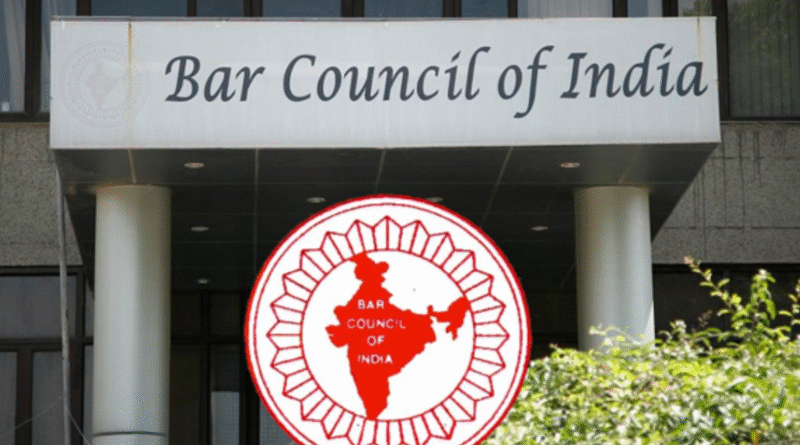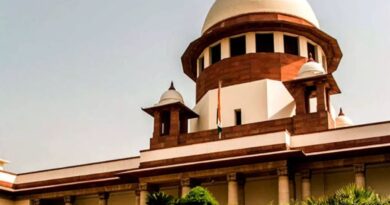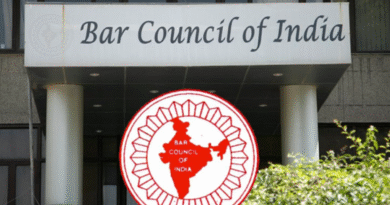BCI Issues Fresh Press Note on Foreign Collaborations; Withdraws Earlier Release Naming Dentons Link Legal
The Bar Council of India (BCI) has released a new press note after withdrawing its earlier statement that had mentioned Dentons Link Legal and CMS IndusLaw in relation to alleged unauthorised foreign collaborations.
The fresh press release, issued on October 21, follows BCI’s assurance before the Delhi High Court in Atul Sharma v. Bar Council of India & Anr. The Council had promised to withdraw its previous release of August 5 and issue a revised one after reviewing the matter. The Court recorded this assurance on August 28 and directed the BCI to file its counter-affidavit within four weeks. It also extended its interim order restraining the regulator from taking final action on the show-cause notice issued to Dentons Link Legal.
The earlier press release had named the two firms as examples of “unauthorised collaborations or combinations” between Indian and foreign law firms. Dentons Link Legal had challenged the statement before the High Court, calling it defamatory and prejudicial since no inquiry had been completed at that time.
In the revised release, the BCI clarified that both the old and new press notes merely record the issuance of show-cause notices and do not pronounce any guilt. It said the statements were only meant to clarify the regulatory position and advised all lawyers and law firms to review their websites, media announcements, and social media content to remove prohibited information.
The BCI said it has observed several instances where Indian and foreign law firms present themselves as one global legal service platform through models like Swiss Vereins, strategic alliances, referral tie-ups, or joint branding. Such arrangements, it noted, can mislead clients and breach the Bar Council of India Rules for Registration and Regulation of Foreign Lawyers and Foreign Law Firms in India, 2023 (as amended in 2025). These rules require prior registration, disclosure, and ethical compliance before any such collaboration begins.
Citing the Supreme Court’s ruling in Bar Council of India v. A.K. Balaji & Ors., the BCI reiterated that foreign law firms “cannot do indirectly what they cannot do directly.” The Court had clarified that “practice of law” includes not just courtroom appearances but also providing legal advice, drafting contracts, and negotiations. Therefore, any activity that effectively involves practising Indian law falls under the Advocates Act, 1961 and is subject to BCI regulation.
The BCI further stated that in arbitration proceedings held in India where evidence is recorded under Section 19(3) of the Arbitration and Conciliation Act, 1996, foreign lawyers cannot appear or cross-examine witnesses. However, if an arbitration involves a specific issue of foreign or international law, a foreign lawyer may address or cross-examine only on that limited issue, provided that it is not recorded as evidence under oath.
The Council confirmed that show-cause notices have been issued to certain firms and that they have been asked to provide full details of their structure, governance, and operations. Non-compliance may attract proceedings for professional misconduct under the Advocates Act, 1961. Additional notices to other firms are also under consideration, and continued operations under combined or foreign-linked names without registration would be treated as an aggravating factor.
Reiterating Rule 36 of the Standards of Professional Conduct and Etiquette, the BCI warned lawyers and law firms against public events, media promotions, or social media campaigns portraying integrated global operations. Such activities, it said, could amount to advertising or client solicitation, both of which are prohibited under Indian law.
The BCI also observed that several public communications—including launch events, press releases, and websites—portray Indian offices as part of a single global firm. These instances, the Council said, would be examined under the “principle of pith and substance.” If found to mislead or advertise integrated global practice, they would be considered violations of the Advocates Act and BCI rules.
The BCI emphasised that its regulatory framework remains open and transparent. Foreign lawyers are allowed to practise foreign and international law in India within defined limits, but the independence of the Indian legal profession must be protected. The Council urged all law firms to audit their communications and warned that violations may result in reprimand, suspension, or even removal from practice.




